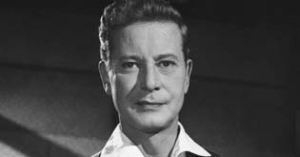Gallery
All Pictures (20)Biography
Dieter Albert Eugen Rollomann Borsche, born October 25, 1909, in Hannover, took dancing lessons after finishing school and became a cast member of Hannoversches Opernballett from 1930 to 1935. Borsche also attended actor's training. After a short stint as an actor in Weimar, he was a cast member in Danzig from 1939 to 1942, and in Breslau from 1942 to 1944. In 1944, Borsche was drafted for military service, served in an infantry division in the Eifel and became a prisoner of war after being wounded. After the end of the war, Borsche for a short period of time operated a shop for wooden toys in the Bavarian forest.
Then, Bernhard Minetti placed him at Städtische Bühnen Kiel where Borsche became the head of acting from 1947 to 1949. Borsche's actual acting career at the theatre did not start before the 1960s, though. The role of a psychiatrist in a production of Peter Shaffer's "Equus" in 1974 was one of his most successful performances although Borsche then was already bound to a wheelchair due to increasing muscular dystrophy.
Borsche made his movie debut in 1935 in Fred Sauer's Weiß Ferdl comedy "Alles weg"n dem Hund" ("All for the Dog"s Sake"). He finally became a public idol in 1949 with his performance as the Catholic vicar von Imhoff, who stands by his Protestant colleague after a spiritual breakdown, in Harald Braun's "Nachtwache" (Keepers of the Night). Whether in a cassock, in a pristine doctor's coat (as "Dr. Holl" - "Affairs of Dr. Holl"), or in a neat officer's uniform (as corporal Friedrich in "Es kommt ein Tag" - "A Day Will Come"), Borsche represented the ideal man of his era: a calm and upright gentleman with assuring authority, and a mildly melanchlic lover in films with Maria Schell or Ruth Leuwerik. Only director Kurt Hoffmann once dared to undermine Borsche's sublime inviolability. In "Fanfaren der Liebe" ("Fanfares of Love"), a forerunner of "Some Like It Hot", Borsche and Georg Thomalla played two unemployed musicians who dress up as women to get a job in a ladies band.
Borsche also appeared in several successful international productions, for instance in Jacques Becker's "Ali-Baba et les quarante voleurs" and in Douglas Sirk's "A Time to Love and a Time to Die". During the 1960s, Borsche favoured shady and murderous characters, played villains in Edgar Wallace adaptations and surprised the public as the killer in the famous TV mini series "Das Halstuch", written by Francis Durbridge. From the end of the 1970s on, Borsche was bound to a wheelchair due to his severe illness and started to work for the radio and as a dubbing voice.
On August 5, 1982, Dieter Borsche died in Nuremberg.
